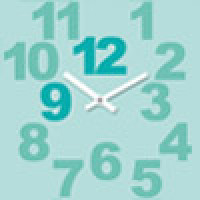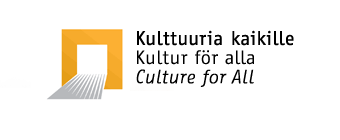
IHME Festival2014
Annual IHME Contemporary Art Festival consists of a commissioned work of art in a public space, as well as lectures, discussions, and art-education projects. IHME Festival is held in Helsinki 31st March - 6th April.
The Culture for All has selected some events from the festival program, that are linked to equality, multilingualism, whiteness, human rights etc.
IHME Project Film World Premiere March 31st
Yael Bartana´s art film True Finn - Tosi suomalainen will get its long awaited world premiere on Monday, March 31, at 18:00 at the Bio Rex cinema (Mannerheimintie 22-24). The premiere has free admission. After the screening there is a discussion with Yael Bartana and the participants appearing in the film. The discussion, in Finnish and English, will be moderated by culture journalist Minna Joenniemi.
After the screening the film can be viewed globally on Yle Areena on-demand service until July 31.
Francin Alys, Watercolor
Friday 4.4. at 20.00-21.30. Old Student House, Great Hall.
Finnish premiere.
In Francis Alÿs´ (b. 1959, Antwerp) video Watercolor (2010) the artist takes water from the Black Sea with a bucket and then pours it into the Red Sea. The geographical locations give this simple act political significance. ‘Black´ water is transported from the shores of Trabzon in Turkey to Aqaba in Jordan, where it is mixed with the Red Sea, whose shoreline Jordan shares with Israel, Egypt and other countries. As the waters from seas that get their names from a warlike past, but also from the nature of the local soils, are mingled together, the work leaves it to the viewer to wonder: Does colour ultimately matter?
The Belgian Francis Alÿs has lived in México City since 1986. In his works Alÿs deals with political and social topics. He is interested in national boundaries, the local and the global. Many of his works are based on performance, on the artist´s own presence in public space.
Think Tank Magma: Multilingual Finland
Several languages have been spoken side by side in Finland throughout history. Alongside the Sámi language, and Slavic and Ugric languages, there is the Swedish language, which has been spoken here for at least the last thousand years. Although historically the Swedish language has frequently been considered the language of power, it has been a major factor in the formation of Finnish culture. The key players in the history of visual art spoke Swedish, and literature in Finland has always also been created in Swedish.
The theme of the discussions arranged by Think Tank Magma on the IHME Days is the importance of language for cultural and national identity as seen from the viewpoint of art. The discussions in Finnish and Swedish will be led by Maria Hirvi-Ijäs, PhD.
1. The Native Language of Art
Friday 4.4. at 19.15-19.45. Old Student House, Banqueting Restaurant. FIN/SWE
Is the language of visual art universal, or then what is its linguistic dimension? Museum Director Kai Kartio and Deputy Professor at Finnish Academy of Fine Arts and artist Ulrika Ferm discuss the relationship between the visual language of visual art and its verbal articulation.
2. Dialogic language
Saturday 5.4. at 19.00-19.30. Old Student House, Banqueting Restaurant. FIN/SWE
Are literature and a dynamic language the heart of Finnish-Swedishness? Are dialogicality and an open cultural space for language a threat or an opportunity? Think Tank Magma´s second discussion considers the importance of language. In the discussion: critic Tuva Korsström and writer Monika Fagerholm.
The Trial: National Art
Friday 4.4. at 17.00-19.00. Old Student House, Great Hall. FIN
Nationality is said to be a product of a state and an education system, rather than a precondition for them. Nevertheless, a number of golden ages, whose cultural-historical significance few would dispute, have been achieved beneath national insignia. So, what, does nationality mean in art? Why might originality be specifically associated with nationality? What are we to think of national art now, when the importance of nation-states and their internal uniformity are in decline? Are these developments bringing a disintegration or a change in the framework for national art?
These and other tricky questions will be answered by the counsel for the defence for national art against its accusers in a trial of art in front of witnesses. In customary fashion the judge at The Trial, now being held for the fifth time, will be philosopher Tuomas Nevanlinna. The guests representing the prosecution, the counsel for the defence, the prosecution wittness, and the wittness for the defence will be announced later.
IHME Open looks at human rights
Saturday 5.4. at 17.45-18.45. Old Student House, Great Hall. FIN
The IHME Open discussion will be about national, European and universal values seen in terms of human rights. Where do human rights really come from? What values do they reflect? How are they defined internationally and here in Finland? What does being European mean? What is the connection between human rights and religion? Are human rights a "secular" religion? What happens if your own set of values and human rights are in conflict?
The discussion will be led by the Executive Director of the Finnish section of Amnesty International, Frank Johansson. His guests are: the Vice Dean of the Faculty of Law at the University of Helsinki, Jarna Petman; the vice-chairman of the Feminist Association Unioni, Maryan Abdulkarim; and the CEO of Providentia Oy, Santi Martínez.
Images and Talk: The Many Faces of Whiteness - Talking about Race, Skin Colour and Nationality
Sunday 6.4. at 15.00-17.30. Old Student House, Great Hall. ENG
Sunday´s theme brings together the Festival´s international and Finnish academic and art experts to discuss race, the significance of skin colour, and nationality. Taking part in the discussion will be political scientist Pasi Saukkonen, sociologist Nirmal Puwar (UK), literary scholar Olli Löytty and art historian/curator David Dibosa (UK).
Pasi Saukkonen will give a presentation on the topic "Cultural transformations in contemporary Finland", after which each speaker has 20 mins. The event ends with a panel discussion moderated by Pasi Saukkonen.
More information about IHME: www.ihmefestival.fi
